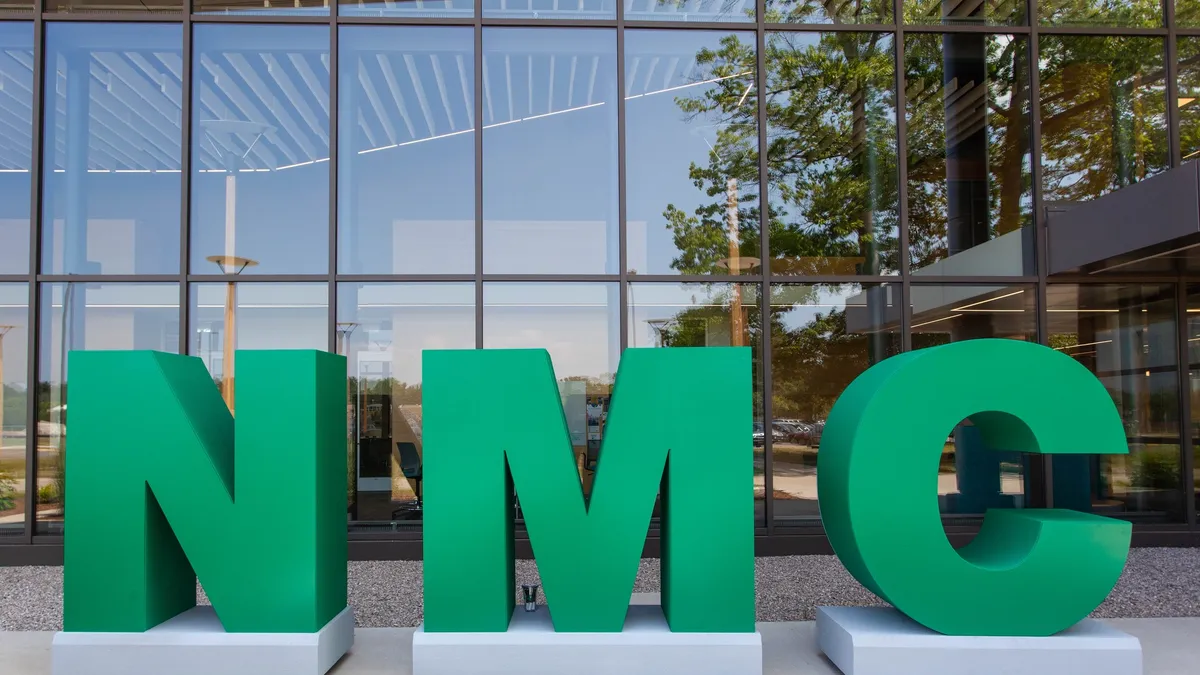Higher education for decades has consistently drifted away from employing full-time faculty in favor of part-time, or adjunct, instructors.
But one Michigan community college is shaking up the sector’s employment model in a different way. As of July, Northwestern Michigan College’s new adjuncts aren’t even institution staff — they work for Edustaff, a staffing firm. It’s one of several Michigan community colleges, like North Central Michigan College, to adopt this approach.
Workers’ rights advocates might raise their eyebrows at this setup. After all, not being a college employee would theoretically offer fewer protections. However, Northwestern Michigan’s new employment system doesn’t appear to be a case of corporate greed but rather a distinctive method of cost-saving, said Kevin McClure, a higher ed professor at the University of North Carolina, Wilmington.
That’s because the arrangement allows the college to avoid contributing to a Michigan retirement system that benefits community college and public school employees — instead the college is boosting adjuncts’ pay. Adjuncts don’t often qualify for the pension because they are part time and don’t work enough hours, said Mark Liebling, Northwestern Michigan’s associate vice president of human resources.
Even though colleges nationwide probably won’t replicate the strategy, it’s one worth watching, especially amid new labor trends like more frequent unionizing and strikes, McClure said.
Liebling said the college doesn’t believe teaming up with Edustaff will infringe on adjuncts’ job protections, specifically the right to organize.
“There are two goals here, one being to be able to offer higher wages to our employees in a way that is affordable to the college, and the second being for the college to reduce its cost of delivering services to its learners and our community,” Liebling said.
More about Northwestern Michigan
Northwestern Michigan College sits near the top of the state, close to the Great Lakes. It enrolled almost 3,100 students and employed nearly 300 part-time and full-time faculty in fall 2022, according to federal data.
Officials sought to work with Edustaff to mutually benefit the college and adjuncts. Edustaff is a Michigan-based company started in 2010 that also specializes in placing K-12 substitute teachers. It works primarily with K-12 school districts, as well as several other Michigan community colleges, some for more than a decade. Edustaff employees receive 401K and health benefits.
Before switching to Edustaff, Northwestern Michigan had “significant constraint” offering adjunct faculty higher pay because the college must contribute a surcharge — 28% of adjunct wages — to the Michigan Public School Employees' Retirement System, Liebling said.
Relying on Edustaff scales back that expense and enables the college to boost adjunct pay substantially, by 7%, Liebling said. The college must still contribute to that pension system for full-time faculty and staff, he said.
Adjuncts have also had to pay into that system. But because they no longer have to, they will see additional salary bumps of between 2% and 4%, Liebling said.
An Edustaff spokesperson did not respond to a request for comment last week.
At Northwestern Michigan, only newly hired adjuncts must work for Edustaff, Liebling said. Existing adjuncts can choose whether to remain a college employee or switch over to Edustaff.
The college expects the move will eventually save it about $250,000 per year, Liebling said.
How’s it going so far?
Northwestern Michigan formally started working with Edustaff in July. By the end of August, 19 of the community college’s adjuncts had been hired through Edustaff and 17 opted to convert to the company’s employment, Liebling said.
Edustaff also employs other Northwestern Michigan contingent employees. The company hired a dozen of those since late August, and 23 current staff members made the switch.
In total, Edustaff pays 71 out of the college's 301 contingent employees, including adjuncts, Liebling said.
The president of a union representing Northwestern Michigan faculty, though not adjuncts, did not respond to requests for comment. But the president told local press that the union believed the arrangement weakened the college’s commitment to adjunct faculty, and that they should organize.
Northwestern Michigan had mulled a relationship with Edustaff eight or so years ago, again as a way to curtail costs and boost adjuncts’ pay.
But in 2015, the Michigan Legislature passed a bill that blocked local government entities, including public colleges, from regulating pay and benefits.
Northwestern Michigan’s then-president, Timothy Nelson, said in a public statement the college was abandoning potential work with Edustaff. He said that he believed the bill would not allow the college to “set wages, conditions of employment, evaluation, and provide professional development resources” for adjuncts who worked there.
At the time, too, the college had considered making the switch to Edustaff mandatory for most adjuncts, which resulted in some pushback.
‘A different instructional context’
McClure, of UNC-Wilmington, said he’s never come across an employment model like the one used by the community colleges.
Institutions routinely outsource, but it's more often pieces of their operations like information technology, McClure said.
Colleges have also courted controversy by handing off management of some of the more key aspects of their operations — like academic programs — to outside parties.
Companies like 2U and Noodle help operate online courses and recruit students to them, but critics have alleged some of these programs are poor quality and that students are often unaware they’re being courted by a third party, not a college. The U.S. Department of Education is developing policies that would subject these vendors to stricter regulatory oversight.
McClure said he could envision a scenario at Northwestern Michigan where faculty candidates might be less inclined to pursue jobs if they feel working for an outside company “reduces the legitimacy of the position.”
But that’s purely speculative, McClure said. In fact, at most community colleges, a majority of instructional staff are part time.
“So this is just a different instructional context by and large,” he said.
Liebling said the college doesn’t want to disrupt adjuncts’ employment experience.
“Aside from pay and retirement benefits, it is our intention that the only difference between the experience of a direct hired employee and one hired through EduStaff will be the company on the paycheck,” he said.






















